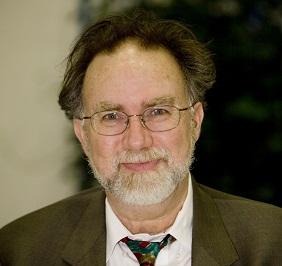Trump’s Nuclear Posture Review: A Call to Nuclear Arms

See The Simons Foundation's Nuclear Disarmament Briefing Papers for occasional papers focussing on nuclear disarmament issues.
Trump’s Nuclear Posture Review:
A Call to Nuclear Arms
By John Burroughs, J.D., Ph.D.
The Simons Foundation Fellow
February 26, 2018
The U.S. Nuclear Posture Review (NPR) released February 2, 2018 views the world as a dangerous, lawless environment, marked by military competition among great powers.
As to nuclear disarmament, the most the Trump NPR offers is a grudging general acceptance of arms control measures for purposes of stability and predictability with perfunctory references to the “long-term goal of eliminating nuclear weapons” and to pursuit of “political and security conditions that could enable further nuclear reductions.” It thus stands in marked contrast to the 2010 review conducted by the Obama administration, which committed the United States to seek the eventual achievement of a world free of nuclear weapons and addressed how to succeed in that endeavor in some detail. Instead, it resembles the 2001 review done under the George W. Bush administration.
An aversion to arms control
The Trump NPR says vaguely that the United States remains open to “prudent,” “verifiable,” and “enforceable” measures and to dialogue, but nothing concrete is offered, nor is the term “enforceable” explained. As to multilateral measures, the NPR says the United States will not ratify the Comprehensive Nuclear-Test-Ban Treaty; negotiations on a Fissile Materials Cut-off Treaty are not mentioned; and no other plurilateral or multilateral measure is identified as worth pursuing. On the last point, the contrast with the Obama Nuclear Posture Review is glaring; it said that over the longer term, “Following substantial further nuclear force reductions with Russia, [the United States will] engage other states possessing nuclear weapons, over time, in a multilateral effort to limit, reduce, and eventually eliminate all nuclear weapons worldwide.” Additionally, the Trump NPR does not take up innovative arms proposals, e.g. for a ban on testing hypersonic glide vehicles and for control or elimination of nuclear-armed cruise missiles.
Concerning the U.S.-Russian relationship, the NPR notes that New START can be extended for five years in 2021, but does not commit to pursuing its extension or to further bilateral measures to reduce the two countries’ nuclear arsenals. The message conveyed is that nothing is possible until the dispute over compliance with the Intermediate Nuclear Forces Treaty is resolved, and more broadly until a more cooperative relationship with Russia is established.
It is true, as the NPR says, and deplorable that following conclusion of New START negotiations in 2010, Russia refused engagement on the ambitious program of bilateral nuclear arms reductions – to include non-strategic nuclear arms and, for the first time, verified dismantlement of warheads – proposed by the Obama administration. The NPR does not seriously address, however, the Russian concerns motivating its position, among them U.S. missile defense programs, to which Russia objects strenuously; development of U.S. conventional long-range strike capabilities; and, not least, the continuing expansion of NATO (thus NATO membership for Georgia remains on the table). Similarly, the Obama administration was not willing to seriously engage with Russia on such matters. And, of course, the U.S.-Russian relationship was and is greatly strained by the Ukraine crisis and the Russian annexation of Crimea, and now by apparent Russian interference in the 2016 U.S. elections.
It is a daunting list of obstacles. But it must also be remembered that the United States and Soviet Union undertook nuclear arms control during the Cold War, and that the unspeakable risks posed by nuclear weapons – especially the U.S. and Russian arsenals with their capacity to end civilization – create an overwhelming imperative to overcome obstacles. Thus it is important, as the NPR rightly says, to “rebuild trust and communication.” It is further true that even if the pursuit of bilateral arms control with Russia remains highly problematic, there are other measures that can be pursued, as indicated above. Indeed, in principle, deliberations or negotiations on a comprehensive agreement on the elimination of nuclear arms could be commenced, with reluctant states brought in later.
Above all, regardless of geopolitical circumstances, the United States is legally obligated under Article VI of the Nuclear Non-Proliferation Treaty (NPT) “to pursue negotiations in good faith on effective measures relating to cessation of the nuclear arms race at an early date and to nuclear disarmament.” According to a unanimous conclusion of the International Court of Justice in 1996, the obligation requires states “to pursue in good faith and bring to a conclusion negotiations leading to nuclear disarmament in all its aspects.” The obligation was reinforced by an NPT review conference “unequivocal undertaking … to accomplish the total elimination” of nuclear arsenals. It was to be implemented in part through fulfillment of another review conference commitment, diminishing the role of nuclear weapons in order to minimize the risk of their use and to facilitate disarmament.
The Obama NPR repeatedly referred to an NPT commitment to reduce the number and role of nuclear weapons. However, nothing of the kind is found in the Trump NPR; the only gesture is a brief mention of the “goals” of the NPT. Moreover, the Trump NPR explicitly rejects a commitment in that vein made by the Obama administration, stating that the “need for flexibility to tailor U.S. capabilities and strategies to meet future requirements and unanticipated developments runs contrary to a rigid, continuing policy of ‘no new nuclear capabilities’.” Continue reading...
Dr. John Burroughs is Executive Director of Lawyers Committee for Nuclear Policy (LCNP), Executive Director of the United Nations office of the International Association of Lawyers Against Nuclear Arms(IALANA), and a Fellow with The Simons Foundation.